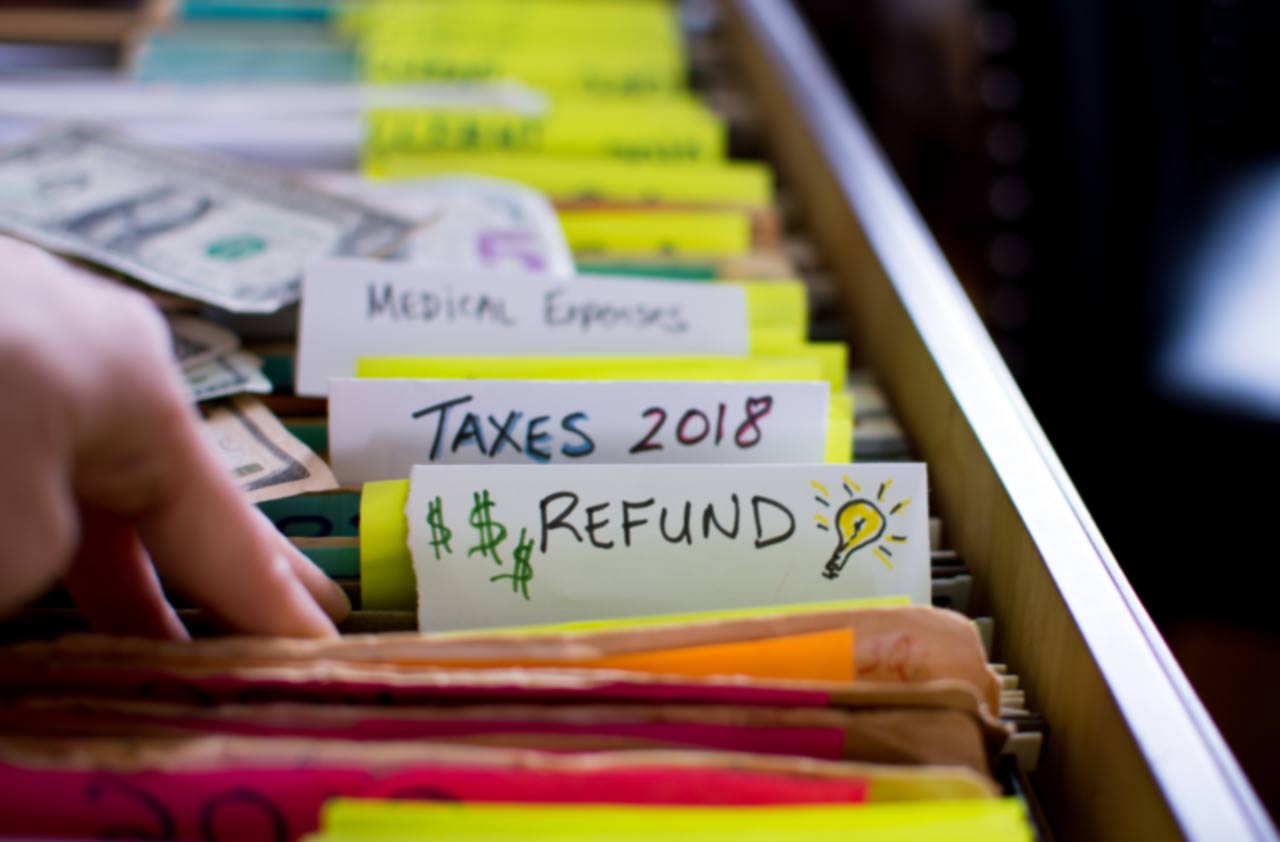3 Powerful Tax Strategies for Retirees
Saving money in your 401(k) and IRA is probably what got you to retirement, but being smart about how you manage those funds once you get there can make a big difference in your tax bills over the years.


Profit and prosper with the best of Kiplinger's advice on investing, taxes, retirement, personal finance and much more. Delivered daily. Enter your email in the box and click Sign Me Up.
You are now subscribed
Your newsletter sign-up was successful
Want to add more newsletters?

Delivered daily
Kiplinger Today
Profit and prosper with the best of Kiplinger's advice on investing, taxes, retirement, personal finance and much more delivered daily. Smart money moves start here.

Sent five days a week
Kiplinger A Step Ahead
Get practical help to make better financial decisions in your everyday life, from spending to savings on top deals.

Delivered daily
Kiplinger Closing Bell
Get today's biggest financial and investing headlines delivered to your inbox every day the U.S. stock market is open.

Sent twice a week
Kiplinger Adviser Intel
Financial pros across the country share best practices and fresh tactics to preserve and grow your wealth.

Delivered weekly
Kiplinger Tax Tips
Trim your federal and state tax bills with practical tax-planning and tax-cutting strategies.

Sent twice a week
Kiplinger Retirement Tips
Your twice-a-week guide to planning and enjoying a financially secure and richly rewarding retirement

Sent bimonthly.
Kiplinger Adviser Angle
Insights for advisers, wealth managers and other financial professionals.

Sent twice a week
Kiplinger Investing Weekly
Your twice-a-week roundup of promising stocks, funds, companies and industries you should consider, ones you should avoid, and why.

Sent weekly for six weeks
Kiplinger Invest for Retirement
Your step-by-step six-part series on how to invest for retirement, from devising a successful strategy to exactly which investments to choose.
Retirees often overlook tax planning. This typically is because retirees are in one of the lower tax brackets and are living on fixed incomes that don’t provide a lot of tax or financial flexibility.
But there are strategies that can lower the overall tax burden and enable seniors to sleep at night. Let’s take a closer look at three essential planning ideas.
Roth conversion
Many people retire in their 60s. Required minimum distributions (RMDs) kick in at age 70½. Between these two ages, retirees typically have lower taxable incomes. So, it makes sense to consider converting funds from a traditional IRA into a Roth IRA.
From just $107.88 $24.99 for Kiplinger Personal Finance
Become a smarter, better informed investor. Subscribe from just $107.88 $24.99, plus get up to 4 Special Issues

Sign up for Kiplinger’s Free Newsletters
Profit and prosper with the best of expert advice on investing, taxes, retirement, personal finance and more - straight to your e-mail.
Profit and prosper with the best of expert advice - straight to your e-mail.
Roth IRAs are great retirement vehicles. The problem is that most retirees just aren’t able to make substantial contributions into them during their lifetimes because they are so focused on the tax deferral of a 401(k) plan. So, considering a Roth IRA conversion can make a lot of sense in your retirement years.
You will need to pay tax on the funds at conversion. But those funds will grow tax-free, and Roth IRAs are not subject to RMDs. This strategy makes a lot of sense for years in which you are in a lower tax bracket.
Donating a portion of your IRA to charity
Many retirees don’t like to take RMDs because they must pay tax on them. However, many do not realize that they can donate the IRA directly to a charity. That way they satisfy the RMD requirement and they also get to offset the income with the charitable contribution.
You are allowed to contribute more than your RMD to charity, but only up to the maximum allowable annual contribution of $100,000. The organization is required to provide you a statement acknowledging the amount received and that no goods, services or benefits of any kind were or will be provided to you. The contribution cannot go to a donor-advised fund or private foundation. This strategy makes a lot of sense if you are looking to donate to a good cause and still minimize your tax liability.
Segregate company stock in a 401(k)
This next strategy is very seldom used but can be very powerful. The tax break is called Net Unrealized Appreciation, and it can provide substantial savings if a retiree had invested money in company stock within their 401(k) account.
When people retire, they typically roll over their 401(k) into an IRA. If they own stock in their company within the IRA, that is often rolled over as well. Upon the sale of the stock, it is then distributed out of the IRA and taxed at ordinary rates.
One option is to separate the stock from your 401(k) accounts and roll the shares into a taxable brokerage account. This makes sense if you have substantial appreciated stock within your 401(k). You do need to pay tax on the current distribution, but when the stock is subsequently sold, you will be able to pay tax at the preferred long-term capital gains rate.
For example, let’s assume you had $500,000 in a 401(k). Of that amount, $100,000 was in company stock with the remainder invested in mutual funds. Let’s also assume that the cost basis of the stock was $20,000.
You would take the stock distribution of $20,000 and pay ordinary income on that transfer. If the value of the stock grows to $150,000 and is sold, you would pay the preferred long-term capital gains rate on the $130,000 profit. If you choose never to sell the stock, the appreciated stock would be transferred to your estate upon death and would typically receive a preferred step up in basis.
The general rule is that you want to pay your tax bill when your rate is the lowest. But a few tax strategies can help you lower your overall tax burden and live comfortably in retirement. All retirees should perform a year-end tax review to make sure that they are being tax efficient.
Profit and prosper with the best of Kiplinger's advice on investing, taxes, retirement, personal finance and much more. Delivered daily. Enter your email in the box and click Sign Me Up.

Paul Sundin is a CPA and tax strategist. With a worldwide client base, he specializes in tax planning and tax structuring for individuals, entrepreneurs and the real estate industry. In addition to being a CPA, he is also an author, speaker and consultant. His professional mission is to educate taxpayers on tax strategies and personal finance.
-
 Dow Leads in Mixed Session on Amgen Earnings: Stock Market Today
Dow Leads in Mixed Session on Amgen Earnings: Stock Market TodayThe rest of Wall Street struggled as Advanced Micro Devices earnings caused a chip-stock sell-off.
-
 How to Watch the 2026 Winter Olympics Without Overpaying
How to Watch the 2026 Winter Olympics Without OverpayingHere’s how to stream the 2026 Winter Olympics live, including low-cost viewing options, Peacock access and ways to catch your favorite athletes and events from anywhere.
-
 Here’s How to Stream the Super Bowl for Less
Here’s How to Stream the Super Bowl for LessWe'll show you the least expensive ways to stream football's biggest event.
-
 How to Add a Pet Trust to Your Estate Plan: Don't Leave Your Best Friend to Chance
How to Add a Pet Trust to Your Estate Plan: Don't Leave Your Best Friend to ChanceAdding a pet trust to your estate plan can ensure your pets are properly looked after when you're no longer able to care for them. This is how to go about it.
-
 Want to Avoid Leaving Chaos in Your Wake? Don't Leave Behind an Outdated Estate Plan
Want to Avoid Leaving Chaos in Your Wake? Don't Leave Behind an Outdated Estate PlanAn outdated or incomplete estate plan could cause confusion for those handling your affairs at a difficult time. This guide highlights what to update and when.
-
 I'm a Financial Adviser: This Is Why I Became an Advocate for Fee-Only Financial Advice
I'm a Financial Adviser: This Is Why I Became an Advocate for Fee-Only Financial AdviceCan financial advisers who earn commissions on product sales give clients the best advice? For one professional, changing track was the clear choice.
-
 I Met With 100-Plus Advisers to Develop This Road Map for Adopting AI
I Met With 100-Plus Advisers to Develop This Road Map for Adopting AIFor financial advisers eager to embrace AI but unsure where to start, this road map will help you integrate the right tools and safeguards into your work.
-
 The Referral Revolution: How to Grow Your Business With Trust
The Referral Revolution: How to Grow Your Business With TrustYou can attract ideal clients by focusing on value and leveraging your current relationships to create a referral-based practice.
-
 This Is How You Can Land a Job You'll Love
This Is How You Can Land a Job You'll Love"Work How You Are Wired" leads job seekers on a journey of self-discovery that could help them snag the job of their dreams.
-
 65 or Older? Cut Your Tax Bill Before the Clock Runs Out
65 or Older? Cut Your Tax Bill Before the Clock Runs OutThanks to the OBBBA, you may be able to trim your tax bill by as much as $14,000. But you'll need to act soon, as not all of the provisions are permanent.
-
 The Key to a Successful Transition When Selling Your Business: Start the Process Sooner Than You Think You Need To
The Key to a Successful Transition When Selling Your Business: Start the Process Sooner Than You Think You Need ToWay before selling your business, you can align tax strategy, estate planning, family priorities and investment decisions to create flexibility.